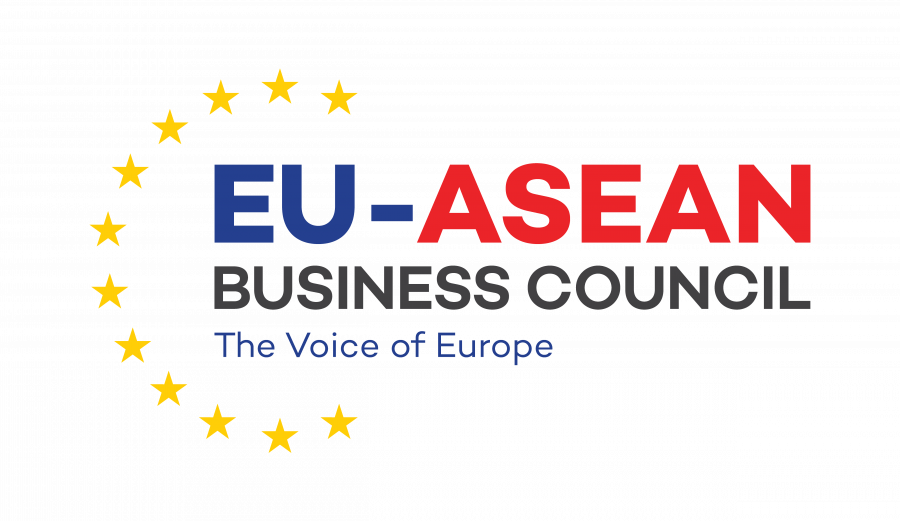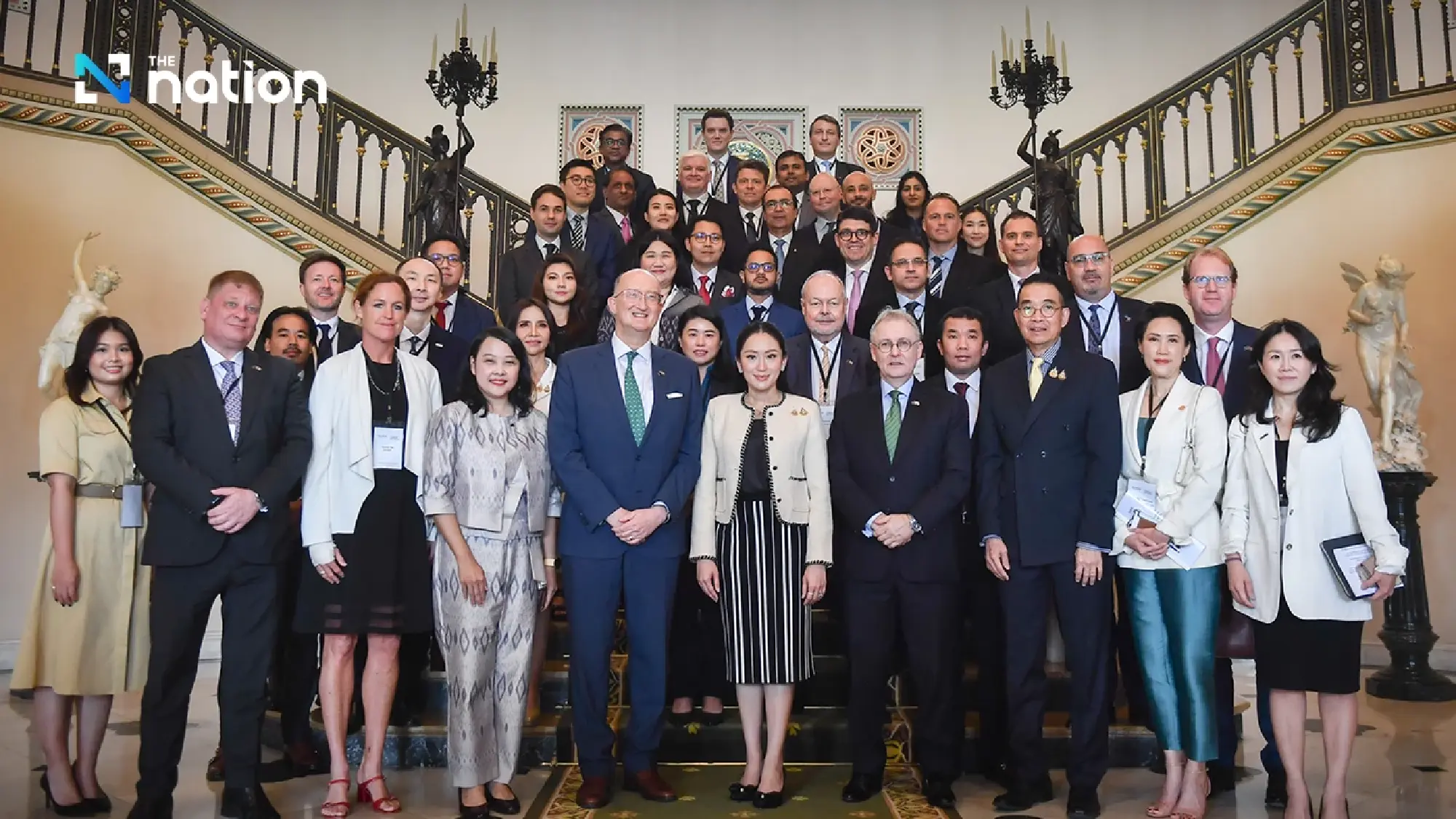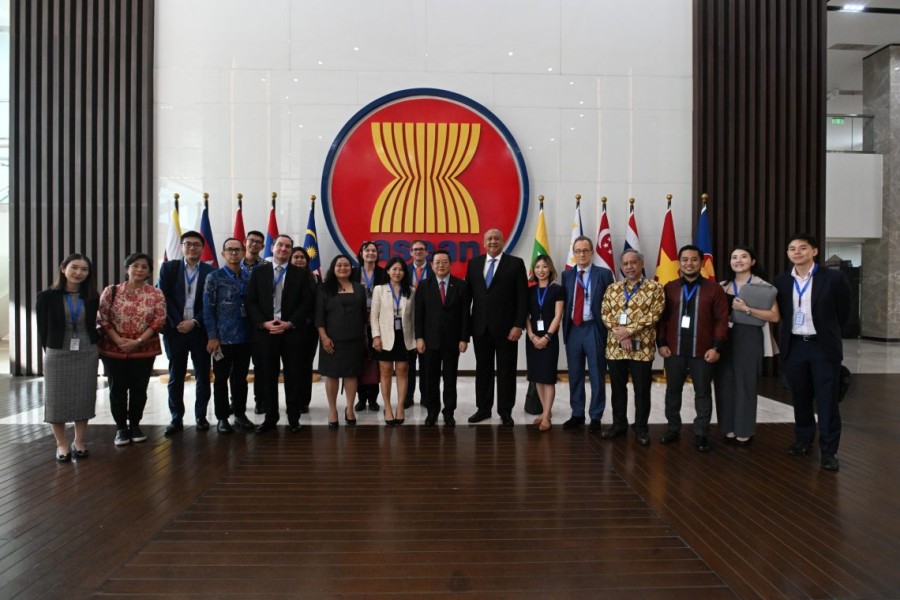[PRESS RELEASE]
ASEAN and EU business and government leaders strengthen trade and economic cooperation at the
10th ASEAN-EU Business Summit marking 45 years of relations
Sustainability, supply-chain energy security, and digital economies enforced as three key thrusts of future collaboration
BRUSSELS, Belgium — 13 December 2022 — Business and government leaders from the Association of SouthEast Asian Nations (ASEAN) and the European Union (EU) strengthened trade and economic cooperation during the 10th ASEAN-EU Business Summit in Brussels, Belgium on 13 December 2022.
The Summit organised by the EU-ASEAN Business Council (EU-ABC) was held a day before leaders from both regions met for the political EU-ASEAN Summit. Key business and political leaders from both regions attended and spoke at the Business Summit.
The delegates were welcomed by EU-ABC’s Chairman, Mr. Martin Hayes, where he said: “We celebrate 45 years of EU – ASEAN (ties) but need to foster even further relations. We need investment for the longterm. ASEAN is one of the few bright spots globally for investment. At the Council (EU-ABC), we want to boost relations and deepen the alignment that the EU and ASEAN already have on a great number of topics. We want to ensure a better, more just, sustainable future.”
As Indonesia assumes the chairmanship of ASEAN for the next year, H.E. Airlangga Hartarto, Indonesian Coordinating Minister of Economic Affairs, delivered the opening keynote address during the summit, on behalf of President Joko Widodo, where he laid out the challenges and opportunities for regional cooperation ahead.
“The global economy is currently in a bad shape as it is plagued by multidimensional issues. In the face of challenges, the Southeast Asia region remains quite stable. Indonesia, as ASEAN chair next year, will address three priorities. One is to expand regional growth through connected and harmonised markets. Second is to accelerate the digital economy in ASEAN and third is to strengthen the resilience of ASEAN economies.”
H.E. Airlangga Hartarto added that besides enhancing connectivity, cooperation in the economic sector and achieving the Sustainable Development Goals is a priority for his country as the grouping’s chair next year.
The emphasis on sustainability was clear throughout the Summit as Mr Charles Michel, President of the European Council, reiterated during the other keynote address.
Mr Michel explained that three areas should be at the heart of the EU-ASEAN work going forward. First is connectivity, as it is essential as the core of trade. Second is digital cooperation as Mr Michel referenced the EU’s recent digital partnership with Singapore as an example that it would hope to see more of across the region. Third, is climate change as he called on the EU and ASEAN to work together to create frameworks to work towards a lower carbon environment.
Mr Michel, emphasised: “The private sector has a major role to play, political leaders need to define the goals and ensure judicial stability and this Summit dialogue, which engages the private sector, will allow us to go even further.”
In the latest business sentiment survey published by the EU-ABC, only 9 percent of EU businesses polled have faith that ASEAN can deliver on Circular Economy Concepts with only less than half perceiving ASEAN as serious in meeting its sustainability goals.
Government and business leaders from both regions discussed this and other pressing issues between the two regions during the two panel sessions.
The first panel discussion, which also included H.E. Pan Sorasak, Minister of Commerce, Kingdom of Cambodia, highlighted the reinvigoration of the EU’s interest in ASEAN in terms of sustainable development besides trade, investment and the digital economy. However, the panel also sounded out some challenges that remain in this relationship.
Jackie King, Executive Director of Ibec Global, a leading European business organisation, said that some key challenges for European businesses in the ASEAN countries are the lack of a common regulatory framework, slow digital advancements in trade financing, and concerns over supply chain transparency.
Dr. Deborah Elms, Executive Director of the Asia Trade Centre added that intra-ASEAN trade has been stuck for a long time. “The incentives to do so (improve trade within ASEAN) are less apparent when external trade grows, there are just not enough incentives. Implementation is always the weak spot for ASEAN and for the whole region. In ASEAN there is a lack of enforcement mechanism so peer pressure for donors and governments works well to push ASEAN members.”
The second panel discussion spoke about the balancing act between achieving sustainability and continuous viability of trade between both regions as panellists discussed various ways in which the sustainability agenda can be deepened in relations between both regions.
Diana Marina Cooper, Global Head of Policy and Regulations, Supernal, added: “Advanced Air Mobility (AAM) can help alleviate common concerns across (ASEAN) member states including traffic congestion and reducing carbon emissions. Studies estimate that traffic congestion results in 2 percent to 5 percent loss in GDP across Southeast Asia. To address these challenges (Indonesian) President (Joko) Widodo has developed plans for the Nusantara Capital City project, and as part of Hyundai, Supernal is pleased to support this exciting project by collaborating with the government to develop AAM policy, regulations, and ecosystem. The EU has developed a set of aviation safety regulations for AAM and other nations like the US, Singapore and Indonesia are working to develop their own AAM frameworks. For this industry to reach its full potential, and to help decarbonise transportation and alleviate congestion, it will be important for aviation authorities to develop bilateral agreements to support aircraft certification and validation globally.”
Maria Martin-Prat, Deputy Director-General for Trade in the European Commission said that sustainability is not only an aspiration of Europe, but also an aspiration of every other region and therefore there is a need to make sure that trade is sustainable.
“We understand that open trade can have a positive impact on sustainability and trade agreements are important platforms to work together on sustainability objectives. Hence, sustainable development needs to be a part of trade agreements.”
Laura Houldsworth, Managing Director Asia Pacific, Booking.com, said that travel is coming back in most regions and heralded the EU’s ambitious goals for sustainable travel as one that Booking.com follows as well. She added that within ASEAN, there is therefore a huge opportunity to make travel more sustainable.
Besides sustainability, other business and government leaders at the event highlighted other areas for cooperation, including supply-chain and boosting trade.
In a fireside chat session during the Summit, H.E. Liew Chin Tong, Malaysia’s recently appointed Deputy Minister for International Trade and Industry, said that the EU should see ASEAN as their most important partner but the challenge is finding trade that works for both ASEAN and Europe. “In many sectors, ASEAN is not (on par with) Europe and this could be an opportunity for the EU to invest in terms of human and bureaucratic capacity.”
In a speech earlier in the Summit, H.E. Håkan Jevrell, State Secretary, Ministry for Foreign Affairs, the Kingdom of Sweden said that although there have been many recent issues in supply chains and examples of protectionism, the EU and ASEAN have to stand for free trade. “The concluded (bilateral) FTAs have been important stepping-stones. I hope that ongoing negotiations (on other FTAs) will move forward.”
H.E. Valdis Dombrovskis, Executive Vice-President and Trade Commissioner, European Commission added: “We are looking at cooperation in different sectors – services, the green economy, resilience in the supply chains, among others.”
Philippine President H.E. Ferdinand Marcos Jr concluded the event by congratulating the EU-ABC for the Summit and for playing “a pivotal role for cooperation and has been useful for prioritising regional economic integration”.
“We need to continue this momentum. It is important that our governments continue to collaborate with the private sector, especially with the current geopolitical challenges. With the participation of ASEAN members in trade deals, ASEAN is well positioned to accelerate our progress. Although the EU is historically a dialogue partner of ASEAN, an FTA is a long-term objective. In the meanwhile, ASEAN will continue to dialogue on economic competitiveness as the short- to medium-term plans are to transform ASEAN into a leading digital economy.”
Jens Rubbert, Vice-Chairman of the EU-ABC added that the business council supports the negotiations of more FTAs between the two regions and that it hopes the EU’s negotiations with the Philippines, Malaysia and Thailand will be resumed and that these FTAs will be concluded swiftly.
The event has attracted a large corporate interest as Booking.com, Danone, Ibec Global, Sanofi, Supernal, Turkish Airlines, and Worldbridge Group as sponsors of the Summit.



